Observe the following circuits carefully. In which circuit will the bulb glow. Write “Yes' or "No' about each of the circuit given in figures.



Important Questions on Chemical Effects of Electric Current
In the circuit given in figure, Boojho observed that copper is deposited on the electrode connected to the negative terminal of the battery. Paheli tried to repeat the same experiment. But she could find only one copper plate. Therefore she took a carbon rod as negative electrode. Will copper be still deposited on the carbon rod? Explain your answer.
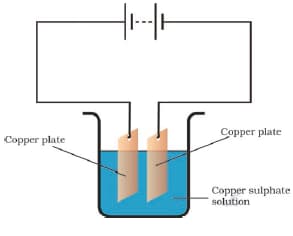
Observe the circuit given in Figure.
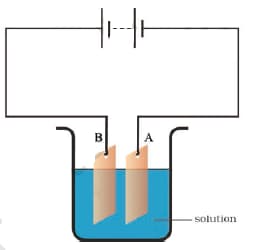
Boojho set up this circuit for purification of copper. What will be the nature of - (i) plate (ii) plate (iii) the solution. Explain the process of purification.
Observe the following circuit given in figure.
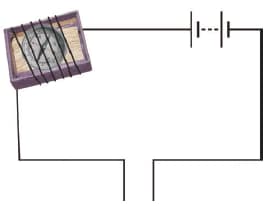
Current does not flow in the circuit if there is a gap between the two wires. Does it indicate that air is a poor conductor of electricity? Does air never conduct electricity? Explain.
Boojho made the circuit shown in figure. He wanted to observe what happens when an electric current is passed through water. But he forgot to add a few drops of lemon juice to water. Will it make any difference to his observations? Explain.
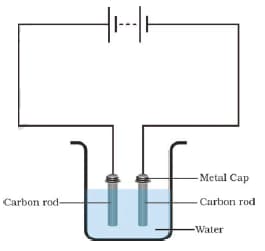
Observing that the bulb does not glow in the circuit shown in Figure A, Boojho changed the circuit as shown in Figure B. He observed deflection in the magnetic compass.
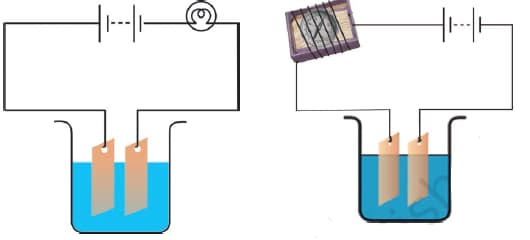
What does the deflection in magnetic compass indicate?
Observing that the bulb does not glow in the circuit shown in Figure A, Boojho changed the circuit as shown in Figure B. He observed deflection in the magnetic compass.
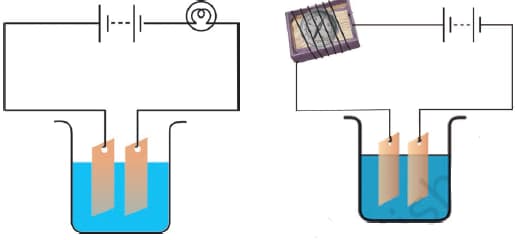
Why did the bulb not glow in Figure A.
Observing that the bulb does not glow in the circuit shown in Figure A, Boojho changed the circuit as shown in Figure B. He observed the deflection in the magnetic compass.
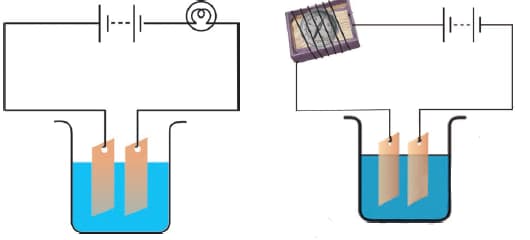
What would be the effect of the increase in the number of turns in the coil wound around the magnetic compass in Figure B?
